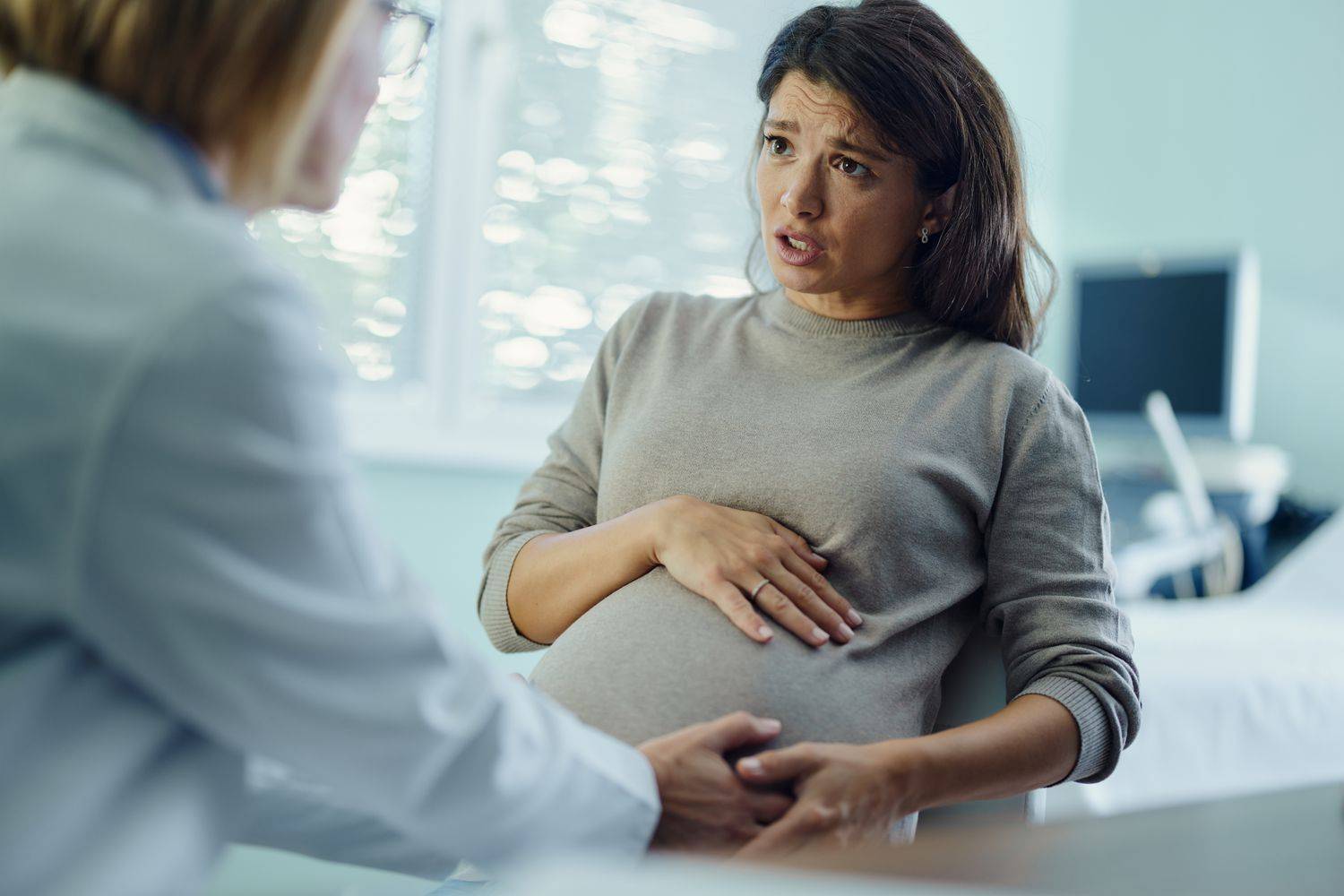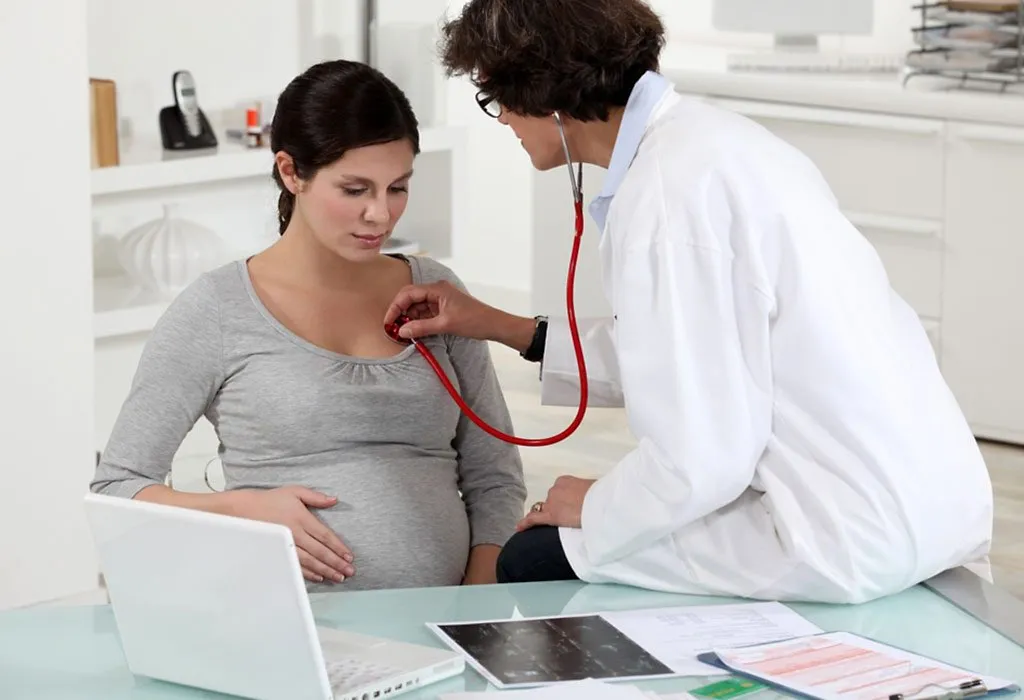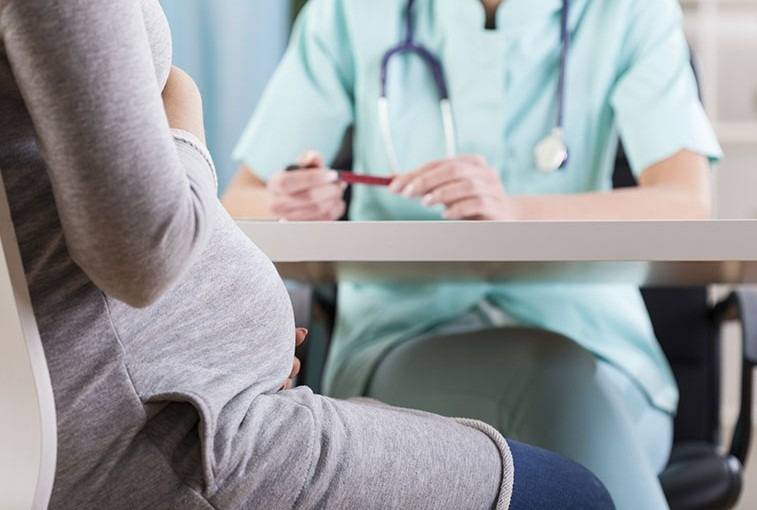Table of Contents
Having a life blossom inside you is probably the best feeling. The journey that begins with the excitement of suspecting that you might be expecting and ends with holding the baby in your arms is a fulfillment you can’t exchange for anything, despite the roller coaster of emotions involved.
Pregnancy is one of the roughest rides, yet it’s a journey every woman looks forward to. The feeling of the baby’s first kick or hearing the heartbeat brings you ‘over the moon’—but you come crashing back to earth the next minute with sharp lower back pain.
This continuous ebb and flow of emotions can only be overcome after nine months. The last stage will be filled with both excitement and uncomfortable symptoms. We will look into the common problems in the last few months of pregnancy.

1. Insomnia
This is a type of sleep disorder in which you’re having issues falling or staying asleep. However, the discomfort of growing a baby causes sleeplessness in pregnant women, particularly in the last trimester.
Luckily, there are many ways to alleviate the discomfort and avert insomnia. First, find the sleeping position in which you’re most comfortable. Choose either right or left—but not on your back. Sleeping on your back can be uncomfortable for some women.
Rather, sleeping on either side shifts your hips and prevents the belly weight from resting on your back. You can also try body pillows, especially the ergonomically C-shaped ones, that you can place comfortably under your neck, between your legs, and around your shoulders.
Another way to alleviate insomnia is by practicing good sleep habits. Also, drink warm tea or milk, take a warm bath, or turn off all the lights to induce sleep. If the symptoms persist, check with your doctor, who can prescribe over-the-counter drugs.
2. Inflammation or Swelling
By the seventh month, edema may appear in some parts of your body, particularly the lower extremities—ankles and feet. This occurs since your body produces more blood by around 60%, while at the same time, the growing uterus exerts pressure on the veins that send back blood to your heart.
As a result, the lower extremities swell with blood, appearing edematous. This also causes varicose veins—swollen veins that look blue or purple. However, this should go back to normal after childbirth.
To reduce or avoid swelling, minimize the time spent standing. If you need to stand for a long time, take a few breaks to sit down and elevate your feet for about 10 minutes to help the blood that is collected at the lower extremities flow into the body.
You may also elevate your feet as high as you can before bed. Put them on a stack of pillows to allow blood to flow back to the heart, which will then be strained in the kidney, and you will pass it out through urine.
Also, consider wearing compression stockings when standing lengthily to prevent fluid from collecting on your lower extremities. Another thing is that if your shoes start to feel tight, wear those with straps, flip-flops, or similar styles.
. However, if you notice asymmetric swelling or sudden swelling, one calf is tender or warmer than the other, or one leg is bigger than the other, see a doctor immediately. This could be a symptom of a blood clot, while swelling in the fingers or hands may be a sign of preeclampsia.

3. Hip and Back Pain
The surge in progesterone production during pregnancy causes this. The increase causes muscles and joints to relax to accommodate the developing uterus and improves pelvis flexibility so that the fetus can move through the birth canal easily during birth.
This significantly affects your posture due to the weight of the developing baby. You tend to lean to one side, which causes hip or lower back pain. To ease the pain, wear a support belt below and above the belly to reduce the pressure exerted on the back and hips.
Luckily, there are tons of support belts on the market you can choose from. Don’t worry, as the belt will not hurt your growing baby, and you can tighten it as much as you want.
Another way to alleviate hip or back pain is to place a few pillows below your hips when sitting down or on a yoga or medicine ball rather than a chair. Also, use a heating pad on your back or hip to reduce the pain, or take a warm bath to help relax the muscles.
Sometimes the pain can be unrelenting or deep, to the extent that you are unable to work. If it reaches this point, see your doctor. Sometimes, a rhythmic pain in the back can be a sign of labor.
4. Dizziness and Lightheadedness
When the fluid and blood collect in your lower body parts, it causes lightheadedness or dizziness. The feeling persists when you spend most of the time on your feet or when you stand up quickly. Don’t get up quickly from a lying or sitting position.
Use compression stockings to push blood into the circulation system from your lower body parts. If you must stand for a long time, walk around to enhance your circulation.
Try sitting up first before getting out of bed, then putting your feet down. Wait a few minutes, and then stand up, giving your body enough time to adjust. Nonetheless, consult your physician if you experience lightheadedness and dizziness more frequently, along with an accelerated heart rate.

5. Breast Pain
An expectant mom’s breasts undergo hormonal changes in preparation for breastfeeding. This leads to breast enlargement, which causes pain. This is more common in women with small breasts than in women with large breasts.
To prevent or reduce this discomfort, increase your bra size, especially the cup size. Buy new pairs as you move towards delivery, and this will not only reduce breast pain but also back pain.
Sports bras aren’t recommended during pregnancy since they can prevent milk production unless you’re not planning to breastfeed. Ensure the bra has proper support.
6. Increased Body Temperature
During pregnancy, your body circulates more blood than usual, making you feel very hot. Luckily, this is never a serious issue. Just wear loose clothing with breathable fabrics. Ensure to stay hydrated always, and whenever you feel unbearably hot, take a cold bath or swim.
7. Frequent Urination
Commonly occurring during the third trimester, the amount of fluid that runs through your kidneys increases. You will have to pee more often. Also, as the baby grows in your womb, it will press your bladder, making you pee regularly.
Unfortunately, this is nothing you can control. You can’t stop drinking water to avoid peeing. Dehydration may cause contractions, lightheadedness, and dizziness. As a remedy, make adjustments and preparations that you’re going to be peeing more often than normal.
For instance, make sure comfort rooms are nearby, especially when you’re in public places. Unless there are sudden changes, frequent urination isn’t a pressing problem.
If you’re experiencing inconsistent peeing, a burning sensation or pain when peeing, or if the urine is accompanied by blood, you need to seek medical attention.
8. Leaking Urine
You will leak urine a bit when you laugh or cough during the last trimester of pregnancy. This is known as urinary stress incontinence, and you can prevent it by exercising your pelvic floor muscles. This may also last even after pregnancy.
You may consider reaching out to a physiotherapist specializing in pelvic floor exercises for pregnant women. Check with your doctor if this problem persists.
9. Blocked Nose
This is due to pregnancy hormones, which cause the nose lining to become tender and swell. Avoid blowing your nose forcefully, as this can lead to nosebleeds. Also, avoid over-the-counter cold medicines for treatment, especially during pregnancy.
Nasal sprays are recommended but seek prior clearance with your doctor for medications for pregnant women.

10. Indigestion and Heartburn
Heartburn is a common problem during pregnancy. Luckily, treatment involves taking antacid tablets or syrup. Check with your pharmacist, midwife, or doctor to see what suits you. You can prevent heartburn by eating less and avoiding spicy or fatty meals.
Another important point is that heartburn tends to be severe when you lie down immediately after a heavy meal. This can be prevented by elevating your head slightly off your bed. Also, try eating yogurt or drinking one glass of milk to relieve heartburn.
If heartburn becomes persistent, consult your midwife or doctor.
Mettle Through the Home Stretch of Your Pregnancy
If you have made it through the early stages, you will have to mettle through the home stretch of your pregnancy. As you move through, there are problems you can’t avoid. By learning about the issues outlined, you’re better equipped to make your last few months more comfortable.
As would-be moms or moms of our young patients, we at Omega Pediatrics share with you the joy of gladly welcoming another precious little one to the family. Fret not, as we are here to help you in your home stretch until we gently hold your newborn in our arms.
We hope this article has given you a better understanding of what to expect during the last few months of pregnancy. If you wish to learn more, Omega Pediatrics has reading resources, providing you with valuable insights as you navigate baby care and parenting journeys.
FAQ
How can I alleviate insomnia during the last trimester of pregnancy?
Finding a comfortable sleeping position, using body pillows, practicing good sleep habits, and trying relaxation techniques like warm baths or drinking warm tea can help. Consult your doctor if symptoms persist.
What causes swelling in the last few months of pregnancy, and how can I reduce it?
Swelling occurs due to increased blood production and pressure on veins from the growing uterus. To reduce swelling, minimize standing time, elevate your feet, wear compression stockings, and wear comfortable shoes with proper support.
What causes hip and back pain during pregnancy, and how can I manage it?
Hormonal changes and the growing baby’s weight can cause hip and back pain. Using support belts, pillows for support, heat therapy, and sitting on a yoga or medicine ball can help alleviate the pain. Consult your doctor if the pain is severe or persistent.
Why do pregnant women experience dizziness and lightheadedness, and what can be done about it?
Fluid and blood collecting in lower body parts can cause dizziness. Avoid sudden movements, use compression stockings, and change positions slowly. Consult your doctor if symptoms worsen or occur frequently.
How can I manage breast pain during pregnancy?
Increase bra size, especially the cup size, wear bras with proper support, and avoid sports bras. Consult your doctor if the pain persists.



